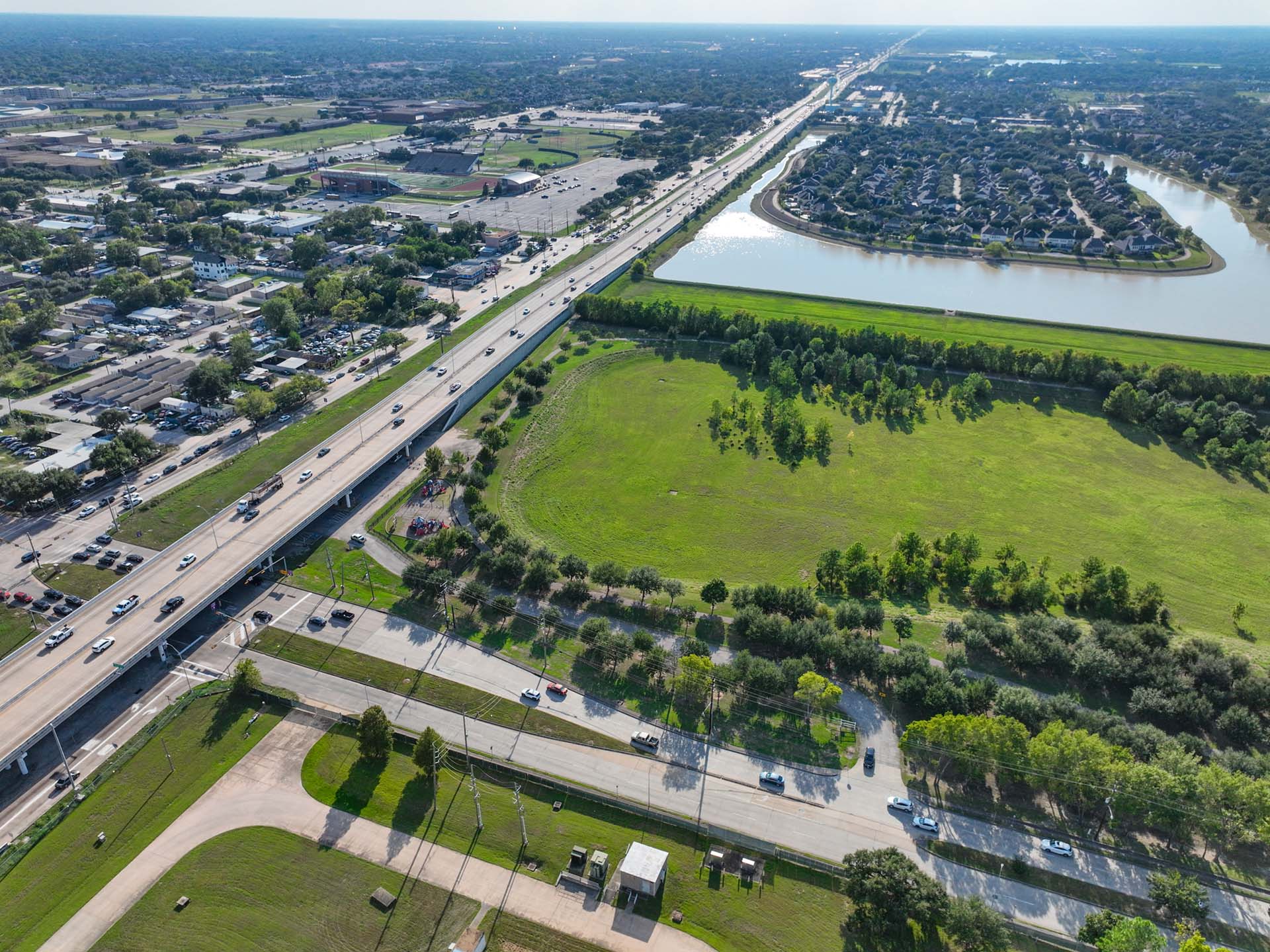The study will focus on the Westpark Tollway from South Gessner Road, just east of the Sam Houston Tollway, to FM 1093 / FM 359 / Main Street in Fulshear. This study area includes the planned extension of the Westpark Tollway to Fulshear.
The study aims to improve safety on the Tollway while also making it more efficient and easier to use. We’re looking ahead to find ways that not only help traffic flow but also benefit the surrounding communities, encourage economic growth, and minimize impacts on people and the environment.
With more people using the tollway and even more growth expected by 2030 and 2040, Harris County has a responsibility to meet the needs of today and the future. This study is critical to determining and managing current and future transportation needs, supporting regional growth, improving safety, promoting sustainable development, and fostering economic and community growth.
The study will involve a robust community engagement effort to create a detailed, multi-part plan with short-, mid- and long-term project recommendations for the corridor and surrounding areas.
How will this study benefit me?
By identifying opportunities to improve the Westpark Tollway, we are making sure it meets your needs now and in the future. Here is how the study team is ensuring the study’s recommendations will benefit you and your neighbors once implemented:
- Safety and Access – We are committed to making sure the Westpark Tollway is safe and efficient for everyone, including easier access to schools, jobs, healthcare, and public transportation.
- Community Building and Placemaking – Communities should be connected, not divided. This means creating and improving public spaces and opportunities for people to come together.
- Smoother Rides – Through recommendations that aim to enhance traffic flow, making your commute faster and less stressful is a top priority.
- Mobility and Alternative Modes of Transportation – We are looking at ways to support future growth, including better connections for public transit, biking, and walking.
- Sustainability and Resiliency – We are planning for long-term solutions that will stand the test of time and make the area more resilient to future challenges, like extreme weather.
- Implementation – We are developing a plan to implement the short-term and long-term solutions.
To learn more about the study’s goals and benefits, visit our Study Benefits page.
The study is expected to be completed by late 2025.
The study will identify a range of short-, mid-, and long-term potential projects intended to enhance safety, improve traffic flow, support regional growth, improve the current conditions of the Westpark Tollway Corridor, and integrate various modes of transportation.
Potential project timelines will be determined and developed as a part of the implementation plan phase, which will occur in late 2025. Implementation of projects will vary depending on several factors, including the nature and scale of the identified project and available funding. HCTRA has partnered with Harris County Precinct 4 to identify opportunities for addressing pedestrian-bicycle accessibility challenges along the corridor as part of the Barrier Free HCTRA Program.
The study is funded by HCTRA, with funding support from the study partners, which are METRO, Fort Bend County, and the city of Houston.
Potential funding sources for projects identified by the study will be identified through the project implementation plan. Local, state, or federal funding sources could be utilized.
How You Can Get Involved
Want to shape the future of the Westpark Tollway? Here’s how you can contribute:
Don’t miss your chance—share your feedback today!
Sign-up here for email updates. We will only contact you with study-related information.
Explore this website to stay informed of the study’s progress and the latest news and information.

